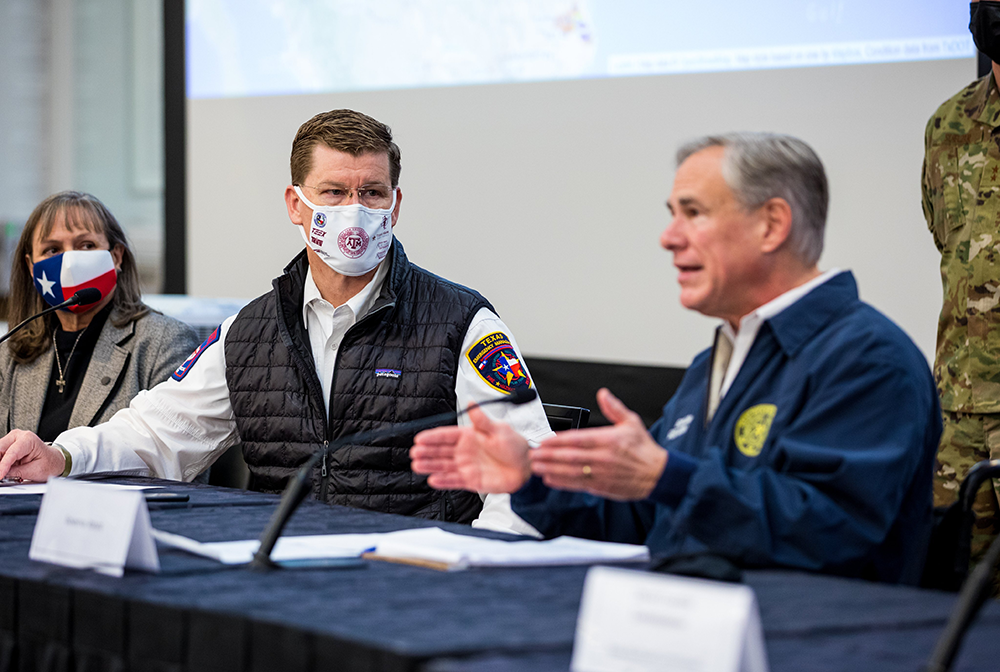When Jean-Paul Nguyen (COL ’24) first heard that a winter storm was coming to his hometown of Houston, Texas, he expected it to be nothing more than an opportunity to play in the snow.
What followed, however, was a week of despair and uncertainty as Texans, including several Georgetown University students, went without power or water for as long as seven days. A severe winter storm struck Texas on Feb. 14, causing power outages across the state. While power has now begun to return to households, many are left without access to clean water because of frozen pipes and electrical disruptions.
The power outages were unexpected, leaving no time for preparation, according to Nguyen.

“Our power went off as I was preparing for a chemistry test at one a.m. Monday morning, but I went to sleep assuming that the power would turn on in the morning,” Nguyen wrote in a text to The Hoya.
However, Nguyen’s power stayed off, and he was unable to attend classes for the week of Feb. 15-19, right before the beginning of midterm exam season. While electricity came back on in short bursts, it was not reliable enough to attend classes, according to Nguyen, who passed the time by reading his textbooks and worrying about the missed class time.
“The electricity schedule was so messed up that I couldn’t predict when I could go to class. It was a miracle if I could, but I could only attend one or two classes,” Nguyen wrote. “It made emailing my teachers even harder because I had a poor cellular connection and it was exam week for two of my classes.”
In addition to power outages, many Texans faced the issue of water shortages, according to Nguyen.
“Our water was in danger of being shut off, and some people’s houses were completely shut off from the water, so they had to take the snow from outside and melt it so that they could have water to drink or to flush their toilets,” Nguyen said.
Being away is difficult while his home state is in crisis, according to Jack Pedigo (COL ’24), who is from Houston but is living in Washington, D.C., for the spring semester.
“Watching from the outside — knowing that my family is struggling and I cannot be there for them — is an extremely painful reality I’m having to deal with,” Pedigo wrote. “I feel helpless.”
Unlike Nguyen, the severe devastation caused by the snowstorm did not come as a surprise because of the increasingly grave consequences of climate change, according to Pedigo.
“I’m most sad about the fact that I’m not surprised at all about what happened,” Pedigo wrote in a text to The Hoya. “I have hope that after this winter storm, Texans will begin to accept that climate change is real, and that delaying action any further will result in similar — perhaps even more devastating — natural disasters in the future.”
Georgetown University Mutual Aid Network, a student group established this year to help distribute funds to students in need, has been working to assist students impacted by the storm. It has collected and distributed donations that have gone toward food, transportation, clothing and housing, according to Binqi Chen (NHS ’22), a representative from GU Mutual Aid.
“We’ve all followed alongside the stories that have and continue to come out of communities in Texas and have our thoughts with the folks in Texas,” Chen wrote in an email to The Hoya. “Our DMs and requests remain open to supporting any need that Hoyas from Texas may need to recover from the last week.”
In the university’s effort to support students, academic deans and advisors sent emails to impacted students inquiring about their well-being. The university’s efforts meant well, but did not go far enough to actively help students, according to Pedigo.
“The emails just seemed a bit obligatory. There wasn’t a widespread effort, just at the discretion of individual deans and advisors,” Pedigo said. “It was more ‘are you okay’ and less of ‘what can we do?’ Minimum effort, it seemed like to me.”
In response to the storm, Georgetown has worked with students and professors to encourage flexibility, according to a university spokesperson.
“We closely monitored the situation in Texas following last week’s severe winter weather. We have shared several resources with our community and our deans are working with affected students on academic flexibility,” the spokesperson wrote in an email to The Hoya.
The university and professors were considerate and helpful, according to Nguyen, who did not have the ability to contact his professors or access virtual classwork during the storm.
“The main effort from the community that I’ve experienced was my dean reaching out to me if I needed any help with reaching out to my professors or giving me resources to contact if I needed to talk to someone,” Nguyen said. “My professors have been really understanding of my entire situation thankfully, but I’m still a week behind on work.”




















